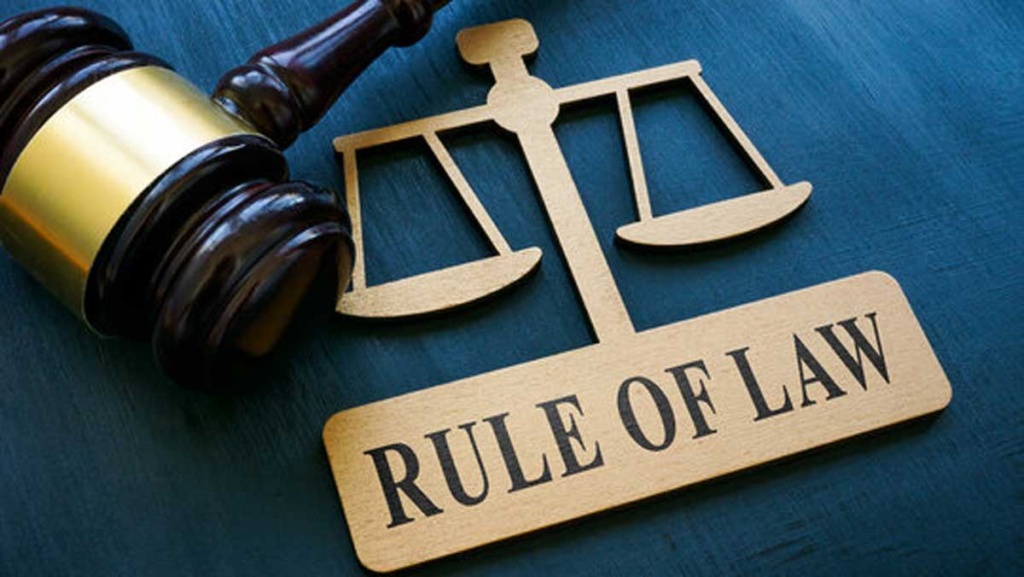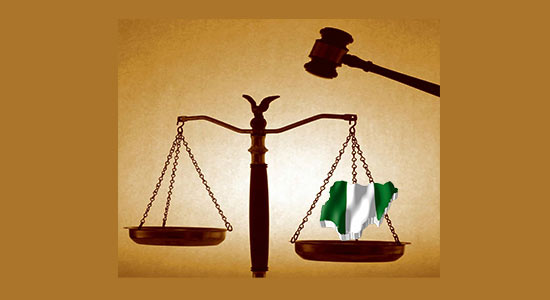
By Olakunle Agboola – I had a robust conversation with my college friend in Nigeria yesterday via WhatsApp. He lamented the state of the nation and the predicament of the citizens who are suffering, while those who could afford to “Japa” are massively relocating abroad in their numbers.
We discussed the last presidential election and how it all played out with the Supreme Court, which seems to be the last hope of a common man, which has now become an institution of corruption and technicalities. It was a think-tank conversation analysing how Nigeria is gradually becoming a failed state, and the common ground is the disregard for the rule of law.
Rule of Law
The Rule Of Law is a defining feature of Constitutional Democracies and a fundamental principle underpinning the Constitution. It prevents the abuse of state power, requires the law to be followed by all, and ensures that legal rights are fulfilled in practice.
Rule of law also underpins social functioning and stable economies by providing clear and legitimate dispute resolution mechanisms and facilitating the elimination of Corruption. The rule of law alone is not sufficient to make a state democratic, but a state, which does not observe it, cannot be a healthy democracy.
This is the situation in Nigeria where there is a disregard for the rule of law. The political elite has continued to willy-nilly subjugate the law and change it to suit their selfish ambition, which is detrimental to the soul of the nation. It will be difficult to have a functional society as regards the scenario of the Nigerian state if the rule of law is not observed and put in the right perspective to build a vibrant nation.
The Nigerian Constitution
The Nigerian Constitution establishes that all persons in the society should be equal to the law of the land. Simply put, the law should apply equally to all or it is expected for all to be equal before the law. This is not the reality of the Nigerian state as corruption and bad governance have continued to plague the citizens and negatively impacted the standard of living and development of Nigeria.
The rule of law is highly important in any given society, as it is the quest for sustainable development. It must be seen, as an integral part of society and this is the major reason the political elites must take caution and ensure the rule of law prevails in all circumstances, as it is directly proportional to the development and peace of the nation.
The Judiciary
The judiciary is a necessary agency of the rule of law, which cannot be undermined. They are active agencies for the rule of law to prevail without parochial intervention. It is expected that the Government should respect the rights of individual citizens under the law and that the judiciary is assigned both by the rule of law and by the Constitution.
Dispute resolution requires the availability of effective and impartial dispute resolution mechanisms. This means that citizens must be able to access the courts and be heard by independent judges under a fair process. Judges should therefore be appointed through a process that is not controlled by the government of the day. This is the only way that there won’t be a threat to the independence of the judiciary.
Collective Role
All parts of society have a role to play in the responsible rule of law. The legislative, executive and judiciary are responsible for observing the rule of law when developing policy goals, and public commitment to fundamental constitutional principles.
When the rule of law of a society is disregarded, it means the soul of the society is punctured and this leads to a state of anarchy. This will drive away foreign investors, as they are not sure if they can find justice if anything goes wrong with their investment. The citizens also will continue to find their way out of the country and relocate to a country where there is respect and regard for the rule of law.
The political elites will have to think beyond their selfishness and greed. They will have to think laterally in their mind the kind of nation they want to build. Separation of power has been the fundamental characteristic for the executives, judiciary and legislative to function independently, and should be encouraged to have a vibrant society.
Kindly follow us on twitter:@AfricanVoice2











